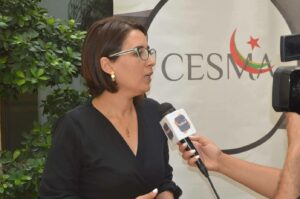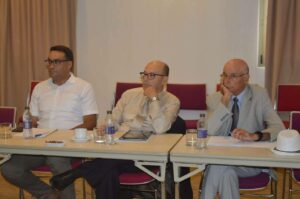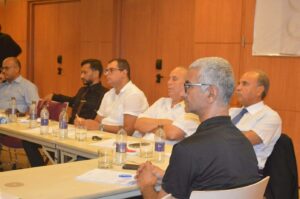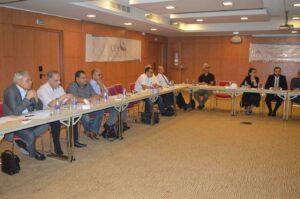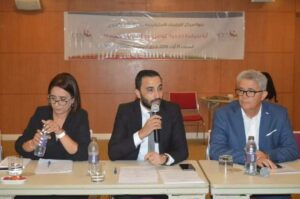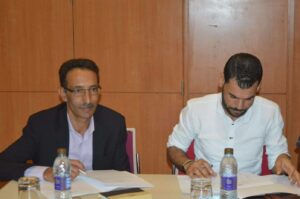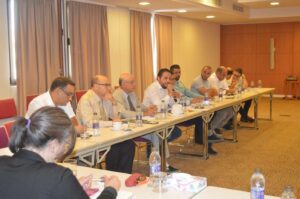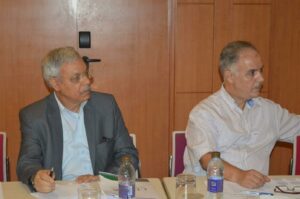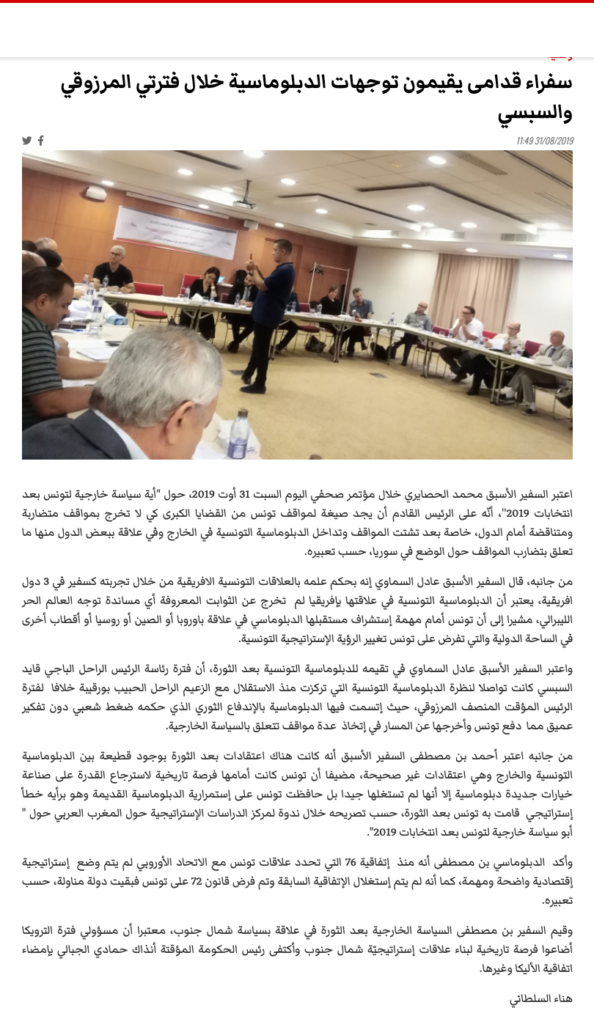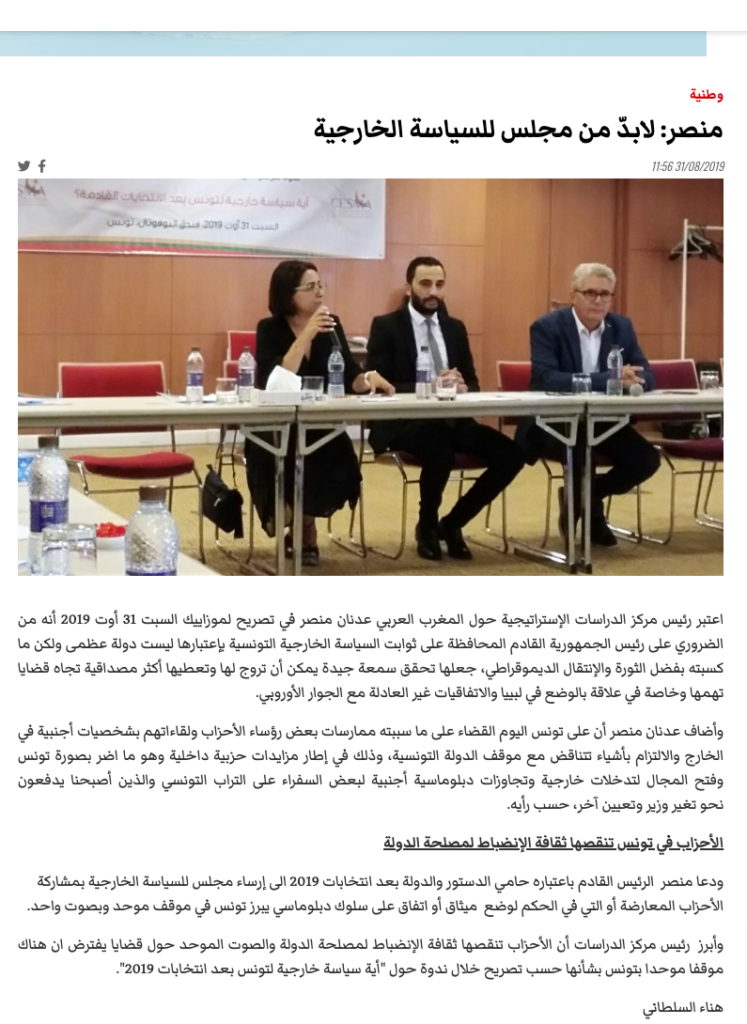Even though there seems to be unanimity among political affairs specialists on the importance of external influences in the “democratization path” in Tunisia, and the severe impact of regional and international instability in the context in which the upcoming presidential and legislative elections will take place, it is noticeable that the presidential candidates in particular tend to minimize the use of any rhetorical elements related to these issues.
The first round of the presidential elections will be held exceptionally on the 15th of September, prior to the legislative race, which for many analysts means that the former will influence the latter, and also that the two candidates who will make it to the second round will probably be the ones backed by a strong political party, and later sustained by a solid parliamentary block. It is most likely that the future President of the Republic will enjoy strong parliamentary support, allowing him to apply the prerogatives allowed by the Constitution in matters of national security and foreign policy.
It is in this particular context that we endeavor to organize a seminar on “Tunisia’s foreign policy after the elections”. The Center for Strategic Studies on the Maghreb has chosen this particular issue to be the subject of its first symposium, after a forced interruption of activity that lasted about four years.
The participants in the symposium, from media professionals, observers and activists, will listen to a number of candidates explaining their visions on international and regional topics,
as they explicit their basic positions towards these problems. When we tried to identify these major problems that Tunisia has yet to deal with after the elections, we have noted that the issue of “instability” cannot be ignored, due to its direct repercussions on the economic and social situation, in a fragile period of “democratic transition.”
On the one hand, the Libyan situation is extremely important in this context, because of its direct repercussions at all levels in Tunisia. And so it is for Algeria: it is the nearest, most powerful and traditionally most influential neighbor. In addition, and since a few years, Tunisia found itself under the influence of powerful Gulf- made policies, driven by two diverging axes, to the point that the political contenders in Tunisia have taken the habit to classify proponents and opponents as per their alignment with one axis or another.
As regards the so-called “Deal of the Century”, which was crowned by the Bahrain conference, it inevitably poses other challenges that the country has succeeded so far in distancing itself from. However, the effects of this context may increase in severity and danger as this project and the possibilities for its implementation become clearer and more imposing. In addition, the economic and financial crisis spiraling in the country day after day has been adding to the problems already imposed by the regional situation and the difficult international context. The direct consequence is the constant pursuit of financing the first chapter of the budget through borrowing, while we notice the limited capacities of financing chapter two, as government investment is almost non-existent or weak at best. The final straw is that the donors have started linking funding to foreign policy positions imposed on the Tunisian state in regional or international crises and rifts.
In the same context, Tunisia has found itself affected by the dire economic and financial situation in the countries of the northern shore of the Mediterranean by virtue of the strong connection of its exchanges on the European market. For decades, European influences have had the final say in the major changes the country has undergone: The influence of European embassies is notorious in Tunisia, and it constantly finds the opportunity to take root whenever the “transition path” falters, or when the financial crisis intensifies. Meanwhile, the path of integrating the country’s policies in the European vision of relations between the two sides of the sea never stopped, as evidenced by the debates on the ALECA draft convention, largely commented by the main political and social actors, till the final decision was postponed until after the elections.
The Center for Strategic Studies on the Maghreb hopes, through this symposium, to open a debate on the topic of Tunisian foreign policy, to contribute to offering serious content to the dialogues that will take place on the occasion of the elections between the various observers and candidates, and to make the issue of Foreign policy trends part of the effort to correct the controversy over “candidate programs” so as to be conform with the powers granted to the President of the Republic by the provisions of the Constitution


